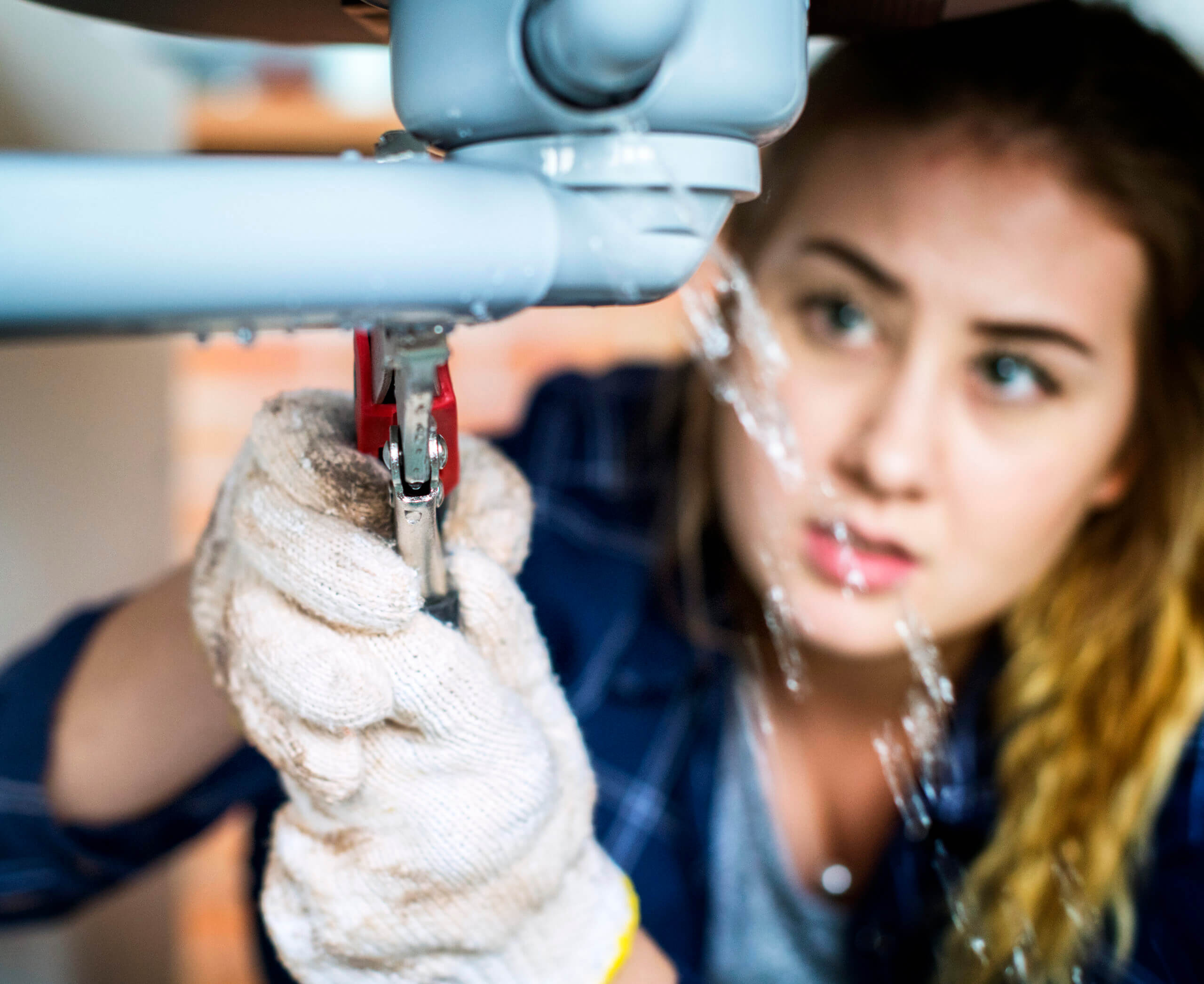How to Prevent Drain Clogs in Your Kitchen Sink

Everyday Habits That Keep Drains Clear
Kitchen drain clogs usually build up from grease, food scraps, and soap scum. Keep pans wiped, pour oils into containers for the trash, and run hot water after heavy dish duty.
- Use a basket strainer and clean it daily
- Compost coffee grounds and peels instead of rinsing them away
- Run the disposer with cold water and small batches
Quick Fixes Before You Call
For a slow sink, remove and rinse the P‑trap, then try a hand auger through the wall bend. Skip harsh chemicals that can damage finishes and gaskets.
When a Pro Makes Sense
Mainline buildup, repeated clogs, or gurgling in nearby fixtures often call for camera inspection and sectional snaking. In LA & Orange County, older galvanized lines may also benefit from targeted replacement.
Keep It Flowing Long Term
Set a monthly cleaning routine with enzyme cleaner or a vinegar rinse, and schedule a preventative cleaning if you see recurring symptoms.
Book a pro visit with Plumbing Squad in Los Angeles or OC.
Key Takeaways
- Understand the essentials of prevent drain clogs in your kitchen sink so you can act quickly and avoid damage.
- Use safe, proven methods first; avoid shortcuts that create bigger problems.
- Prevent issues with routine maintenance and timely upgrades.
- Know when to call a professional to save time, money, and stress.
What Causes Clogs
Most clogs come from grease, soap scum, food particles, hair, and non‑flushable items. Older pipes with rough interiors or improper slopes make buildup worse.
Safe DIY Methods
- Boiling water flushes for grease‑based buildup in kitchen drains.
- Dish soap + hot water for light sink clogs.
- A cup of baking soda followed by a cup of vinegar; wait 10–15 minutes, then flush hot water.
- Use a drain snake (hand auger) to physically remove obstructions—never force it.
Avoid: mixing chemicals, over‑tightening traps, or forcing snakes that could damage pipes.
Prevention Checklist
- Use drain strainers in sinks and showers.
- Never pour fats, oils, or coffee grounds into sinks.
- Run hot water after washing greasy dishes.
- Schedule professional hydro‑jetting for persistent, multi‑fixture slowdowns.
FAQs
How can I prevent prevent drain clogs in your kitchen sink?
Start with routine maintenance: inspections, cleaning, and replacing worn parts before they fail. Address small issues early, use quality fixtures, and follow manufacturer guidelines. A yearly whole‑home check by a pro helps catch problems before they turn into prevent drain clogs in your kitchen sink.
Can DIY fixes make prevent drain clogs in your kitchen sink worse?
Yes. Using the wrong chemical, tool, or technique can damage pipes, fixtures, or finishes, and often pushes the problem deeper. Stick to safe methods and call a pro when you hit resistance, smell sewage, or see leaks.
When should I call a professional plumber for prevent drain clogs in your kitchen sink?
Call right away if there’s active leaking, sewage odors, recurring clogs, no hot water, water stains, or you’ve tried basic steps without success. Emergencies include burst pipes, backflows, and any leak near electrical.
How much does it typically cost to address prevent drain clogs in your kitchen sink?
Costs vary by scope, materials, access, and location. Expect a basic service call to start around a few hundred dollars, while larger repairs or replacements range higher. After an on‑site assessment, your plumber can provide a firm, written estimate.
Need a Reliable Plumber?
Plumbing Squad handles inspections, repairs, and emergency service with transparent pricing and clean workmanship. Call today or book service to get expert help fast.

